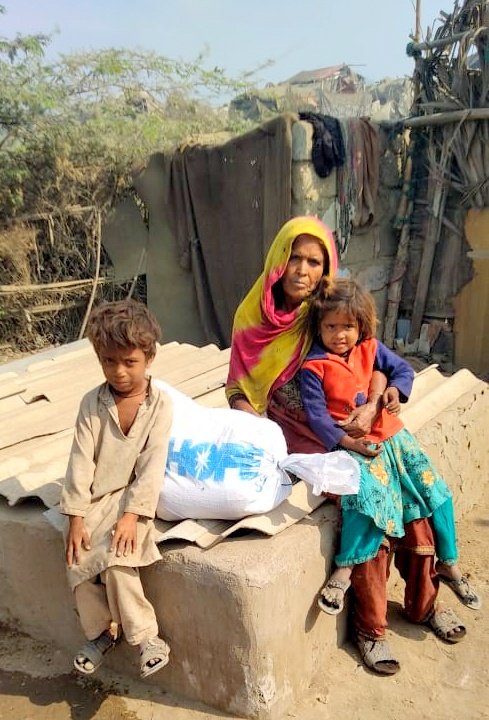
Lack of consistent access to sufficient and nutritious food
Addressing the nutritional needs of orphans and underprivileged communities is a critical endeavor that requires a multifaceted approach, combining immediate food assistance with long-term sustainable solutions. Below is an extensive exploration of various strategies, programs, and best practices aimed at alleviating hunger and improving the quality of life for needy individuals and orphans.






1. Immediate Food Assistance Programs
- Daily Meal Provision: Organizations like the Kind Cares Foundation collaborate with local entities such as the Gulzar-e-Medina Foundation to deliver daily nutritious meals to orphans residing in Lahore’s orphanages.
- Emergency Food Relief: During crises such as natural disasters or economic downturns, providing immediate food assistance becomes crucial. Kind Cares Foundation, for instance, offers emergency food relief to affected populations, ensuring that vulnerable communities receive essential nourishment during critical times.
- Food Distribution Drives: Kind Cares Foundation actively engages in food distribution programs, providing daily meals and essential food packages to families affected by poverty and disasters, thereby addressing immediate food insecurity.
2. Sustainable Food Security Initiatives
- Agricultural Empowerment: Training farmers in sustainable and innovative farming methods enhances food production while preserving environmental resources. This approach not only boosts local food supply but also promotes economic independence among farming communities.
- Income-Generating Projects: Implementing programs that provide underprivileged families with tools and resources to generate income can significantly improve their access to food. For example, Kind Cares Foundation’s initiatives, such as distributing goats to families, empower them to produce and sell milk, thereby ensuring a steady food supply and income.
- Microfinance Support: Offering interest-free loans to mothers of orphaned children enables them to start small businesses, such as purchasing sewing machines or livestock, fostering self-reliance and financial stability, which in turn enhances their ability to provide nutritious food for their families.
3. Nutrition Education and Awareness
- Community Workshops: Educating communities about healthy eating habits, the importance of balanced diets, and proper food handling practices can lead to improved nutritional outcomes. Organizations like the Kind Cares Foundation conduct nutrition awareness campaigns to disseminate this vital information.
- School Programs: Integrating nutrition education into school curricula ensures that children learn the fundamentals of healthy eating from a young age, promoting lifelong well-being.
4. Support for Orphanages and Child Care Institutions
- Comprehensive Care: Providing orphans with access to quality education, healthcare, and nutritious food is essential for their development. Kind Cares Foundation’s Orphan Care Program exemplifies this approach by offering holistic support to orphaned children, ensuring their physical, emotional, and educational needs are met.
- Volunteer Engagement: Involving community members as volunteers in orphanages can enhance the care and attention orphans receive, fostering a nurturing environment that supports their growth and development.
5. Collaboration and Community Involvement
- Partnerships: Collaborating with local businesses, government agencies, and other non-profits can amplify the impact of food assistance programs. Various stakeholders to provide nutritious meals to underprivileged communities, ensuring that resources are utilized efficiently and effectively.
- Community Kitchens: Establishing community kitchens in areas with high food insecurity allows for the mass preparation and distribution of meals, ensuring that no one goes hungry. Kind Cares Foundation’s community kitchen initiatives serve as a model for this approach.
6. Policy Advocacy and Government Support
- Policy Development: Advocating for policies that support food security, such as subsidies for nutritious foods, school meal programs, and agricultural support for farmers, can lead to systemic changes that benefit the needy and orphans.
- Government Partnerships: Working alongside government agencies can enhance the reach and effectiveness of food assistance programs, ensuring that aid reaches those who need it most.
7. Monitoring and Evaluation
- Impact Assessment: Regularly assessing the impact of food assistance programs helps in understanding their effectiveness and areas needing improvement. This process ensures that resources are used efficiently and that programs adapt to changing needs.
- Feedback Mechanisms: Implementing feedback systems allows beneficiaries to voice their opinions and suggestions, leading to more responsive and beneficiary-centered programs.
8. Emergency Preparedness
- Disaster Response Plans: Developing and implementing disaster response plans ensure that food assistance can be rapidly deployed during emergencies, minimizing the impact on vulnerable populations.
- Resource Stockpiling: Maintaining reserves of non-perishable food items allows for quick distribution during emergencies, ensuring that the needy and orphans continue to receive nourishment during crises.
9. Technological Innovations
- Data Management: Utilizing technology to track food distribution and monitor nutritional outcomes can enhance the efficiency of food assistance programs.
- Mobile Solutions: Developing mobile applications that provide nutrition information, allow for food donations, or coordinate volunteer efforts can increase community engagement and support for food assistance initiatives.
10. Cultural Sensitivity and Inclusivity
Inclusive Practices: Designing programs that are accessible to all, including marginalized groups, ensures that no one is left behind in efforts to alleviate hunger and support orphans.
Culturally Appropriate Foods: Ensuring that the food provided respects the cultural and religious preferences of beneficiaries enhances acceptance and satisfaction with food assistance programs.
